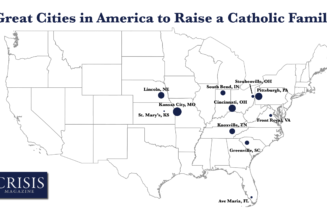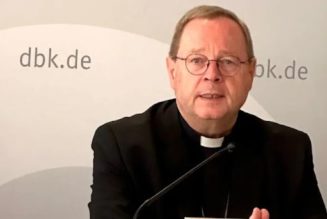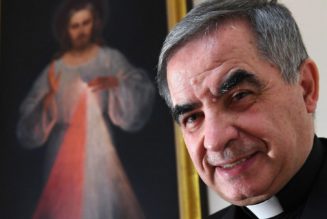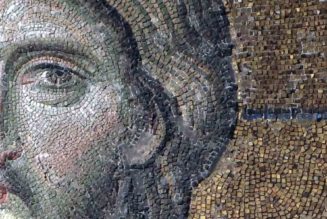Long, long ago, on a planet far, far away, I organized a conference on religion and the public square in a city on the Potomac that I increasingly find hard to recognize. There were sessions on Catholicism, Protestantism, and Judaism. During the last, a rabbi who was also a lawyer working at the White House was challenged by a trio of Jewish feminists. The exchange was civil enough (almost unbelievably so by current standards). But my Jewish friend deftly handled the usual questions about gays, abortion, and women’s roles; “Show me where it’s in the [Jewish] Law and we can talk.”
A good and clarifying principle for Catholics as well. Jesus Himself often referred questioners to the Law and the Prophets.
Of course, it also has to be a sincere effort to understand and be fully faithful to God’s revelation. In The Divine Project: Reflections on Creation and the Church, a series of lectures from 1985, lost but rediscovered and recently published by Ignatius Press, Joseph Ratzinger’s very first sentences read:
Our first concern in this opening lecture is to work out the standards that we will be using to interpret Scripture: How, indeed, can we properly understand a biblical text – not coming up with ideas of our own, but remaining honest with ourselves as interpreters of history – and yet, without doing violence to the text, inquire into its relevance for the present?
This strikes the ancient Catholic note, the desire to know what God has communicated, carefully distinguishing what we might like to be the case, for whatever reasons, from what is the case, and the further effort – beyond intellectualism – to discern how it should shape our lives.
Compare Ratzinger’s spirit in seeking to understand Creation with this account in “Vatican News,” the website of the Vatican Dicastery for Communication, of remarks by the General Relator of the Synod on Synodality at the Asian Continental Assembly on Synodality:
In his third and final point, Cardinal [Jean-Claude] Hollerich offered a synodal interpretation of the creation text. Rather than looking at the text as the creation of “man,” or “man and woman,” or the institution of marriage and the family, a “synodal interpretation of the text” is that “humanity” was created, he said. “We as Church are part of that humanity, and we are called to serve humanity. So, a synodal Church is a Church that is missioned by Christ, proclaiming the Gospel. And if we do not serve the world, nobody will believe in [our] proclamation of the Gospel.”
Anyone reading this might be forgiven for thinking that “a synodal interpretation” – not only of the Creation account but of the Bible in general – really seeks to correct the defects of the text. Forget those simplistic bronze-age binaries, “male and female” He created them, or on the very next page, “For this cause a man shall leave his father and his mother, and cleave to his wife; and they shall become one flesh.” (Gn. 2:24)
Forget what the text – which is to say divine revelation – actually says, concrete reference to man and woman. We now have – who knows how? – “humanity.” And we have to “serve the world,” true enough where the Biblical particulars are properly observed. But in the synodal interpretation, “serving” the world has taken on quite a different meaning: the contemporary world having largely set the agenda for the synodal “process.” Cardinal Hollerich is notorious for having asserted, absurdly, that our “value-free” modern science has somehow shown that traditional moral teachings about homosexuality – male and female He created them? – are false.
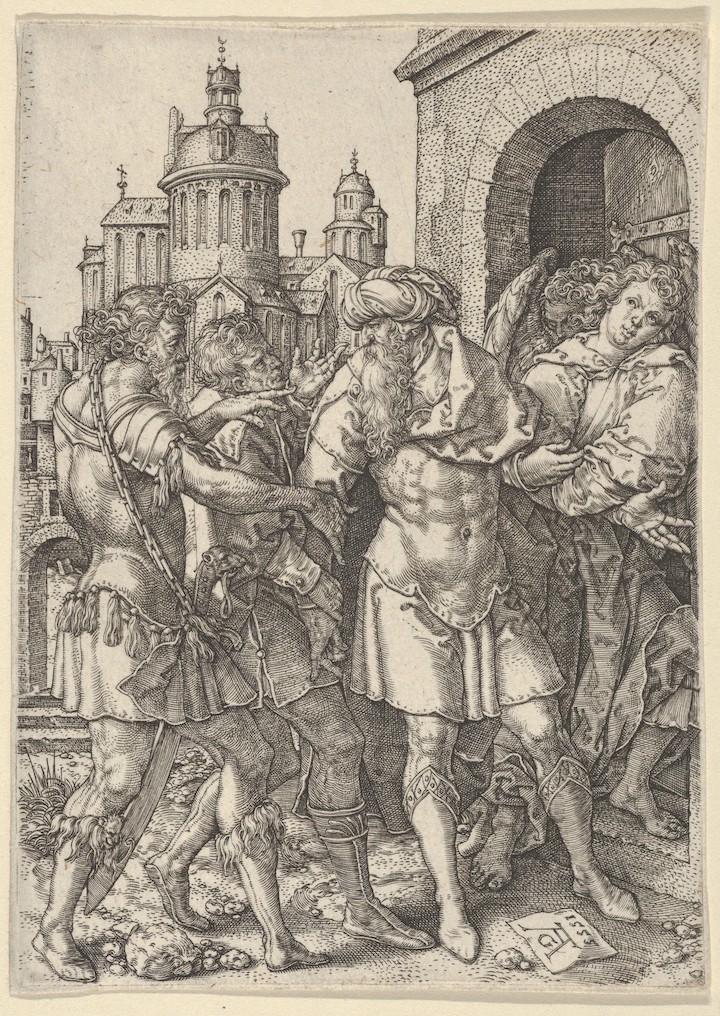
Any intelligent undergraduate can come up with arguments, of a sort, for such a claim, and many these days – well catechized by “the world” – do.
At a much higher intellectual level, there’s been a clash recently between two members of the American hierarchy. Cardinal Robert McElroy and Bishop Thomas J. Paprocki.
In a now notorious article in the Jesuit magazine America, Cardinal McElroy argued very much in terms of the contemporary “world” for the “radical inclusion” of LGBT Catholics. He calls for a kind of pilgrimage for the Church “that must be infused with an overpowering dedication to listen attentively to the Holy Spirit in a process of discernment, not political action.”
We’ve heard a lot about this sort of thing lately, and it sounds almost like Catholicism – except for the fact that the destination of such rhetoric has never, in the 2000-year history of Catholic saints and sages, philosophers and theologians influenced by ancient Jewish, Greek, Roman, Islamic, Asian, indigenous, and secular cultures, put in so much as a cameo appearance.
The Cardinal – like several other churchmen – sometimes suggests that he’s only speaking of including LGBT people, not practice – charity not a change in morals. But only the very innocent will believe that.
An “overpowering dedication to listen attentively to the Holy Spirit” should at least notice that the Third Person of the Trinity has been remarkably silent during the rise and fall of entire civilizations about “radical inclusion” of the sort some regard as the beating heart of “Synodality.”
By contrast, Bishop Paprocki challenged us to imagine, without naming names, a heretical cardinal, “Until recently, it would be hard to imagine any successor of the apostles making . . . heterodox statements.”
Instead of extra-Biblical terms like “inclusion,” “accompaniment,” and “barriers to the grace and gift of the eucharist,” (i.e., perennial teachings), Paprocki notes, in clear terms, even citing the inspired words of Scripture:
the reality is that those who are “separated” and “not in full communion” are separated and not in full communion because they reject essential truths of “the faith which was once for all delivered to the saints.” (Jude 1:3) Thus, it is deeply troubling to consider the possibility that prelates holding the office of diocesan bishop in the Catholic Church may be separated or not in full communion because of heresy.
As the Synodal Process develops over the next two years, we’re going to see a virtual fight to the death between synodal rhetoric and Christian reality.
*Image: Lot Prevents the Sodomites from (committing) Violence, from The Story of Lot by Heinrich Aldegrever, 1555 [The MET, New York]
You may also enjoy:
Rev. Jerry J. Pokorsky’s Breaking from Seductive Sentimentality
Taynia-Renee Laframboise’s “Gender-Expansive” Indoctrinators Get One Thing Right
The Catholic Thing is a forum for intelligent Catholic commentary. Opinions expressed by writers are solely their own.


